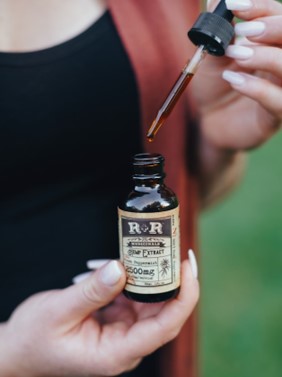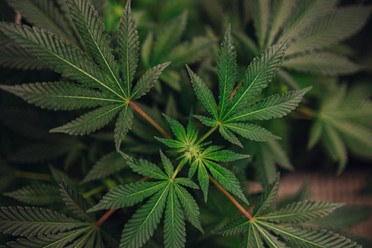
With extensive experience in the CBD industry, Daniel Fung of Watertown, CT offers valuable insights into the evolving legal landscape of CBD and THC purchases, helping consumers navigate these complexities with ease.
Cannabinoid products have evolved dramatically over the past decade, with CBD (cannabidiol) and THC (tetrahydrocannabinol) becoming increasingly prevalent in consumer markets. However, the legal status of these substances varies significantly by region, creating a complex web of regulations that can be challenging to navigate.
CBD and THC are both cannabinoids found in the cannabis plant, but they have different effects and legal statuses. Daniel Fung of Watertown, CT reports that THC is the psychoactive component responsible for the "high" associated with cannabis use, while CBD is non-psychoactive and is often used for its potential therapeutic benefits.
CBD is derived from hemp or cannabis plants and is often marketed for its potential benefits in managing conditions like anxiety, chronic pain, and epilepsy. Its legal status depends largely on its source and THC content.
THC, however, is primarily associated with marijuana and is known for its psychoactive effects. Its legality is more restrictive compared to CBD and is often subject to more stringent regulations.
Daniel Fung of Watertown, CT says that in the U.S., the legal status of CBD products is primarily governed by the 2018 Farm Bill, which legalized hemp-derived CBD products containing less than 0.3% THC on a dry weight basis. This federal legislation allows for the production, sale, and consumption of CBD products across state lines, provided they adhere to these THC limits.
However, states have their own regulations regarding CBD:
Legal States: In states where cannabis is fully legal for both recreational and medicinal use, CBD products are widely available and regulated by state laws. These states often have their own guidelines for CBD products, including testing and labeling requirements.
Restrictive States: Some states have stricter regulations on CBD, particularly concerning its sale and use in food or dietary supplements. In these states, CBD products may be subject to more rigorous scrutiny and may be limited to specific medicinal uses or approved products.
In the European Union, the legal status of CBD varies by country. Generally, CBD products are legal if they are derived from industrial hemp and contain less than 0.2% THC. However, Daniel Fung reports that the EU has yet to establish a unified regulatory framework for CBD, leading to variations in regulations across member states:
Legal Countries: Countries like Germany and the Netherlands have relatively permissive regulations, allowing for the sale of CBD products as long as they meet THC limits and other safety standards.
Restrictive Countries: In some EU countries, such as France and Luxembourg, CBD regulations can be more restrictive, with additional requirements for product approval and limitations on marketing.

The legality of THC products varies widely across the U.S.:
Recreational Use: In states where recreational cannabis is legal (e.g., California, Colorado), THC products can be purchased and consumed by adults over 21, subject to state regulations. Daniel Fung of Watertown, CT says that these states have established regulatory frameworks for the sale, distribution, and consumption of THC products.
Medical Use: States with medical cannabis programs allow for the use of THC for medicinal purposes with a valid prescription or medical marijuana card. These states regulate THC products through dispensaries and have specific rules regarding medical usage.
Illegal States: In states where cannabis is fully illegal, THC products are prohibited. Possession, distribution, and use of THC are subject to legal penalties.
In the EU, the legal status of THC is generally more restrictive:
Medical Use: Some countries, such as Germany and the Netherlands, have medical cannabis programs allowing for the use of THC products under strict medical supervision. These programs require a prescription and are heavily regulated.
Recreational Use: Recreational use of THC is largely illegal across the EU, with only a few exceptions like the Netherlands, where cannabis use is tolerated under specific conditions.
Regardless of legal status, ensuring the quality and safety of CBD and THC products is essential. Look for products that:
When purchasing CBD or THC products across borders:
Research Regulations: Familiarize yourself with both your home country’s and the destination’s regulations concerning cannabinoid products.
Customs and Import Laws: Be aware of customs regulations and import laws, as bringing cannabinoid products across borders can lead to legal issues.
For businesses and individuals involved in the sale or use of CBD and THC products:
Consult Legal Experts: Seek legal advice to ensure compliance with all relevant regulations.
Stay Informed: Regulations are continually evolving, so staying updated with current laws and industry standards is crucial.
Daniel Fung of Watertown, CT concludes that navigating the legalities of CBD and THC purchases requires a clear understanding of the regulations governing these products in various regions. While CBD has gained broader acceptance, its legality is nuanced and varies by jurisdiction. THC, on the other hand, remains more restricted, with its legal status differing significantly between medical and recreational use. By staying informed about local laws, ensuring product quality, and seeking professional advice, individuals and businesses can better navigate the complexities of cannabinoid regulations and make informed decisions.